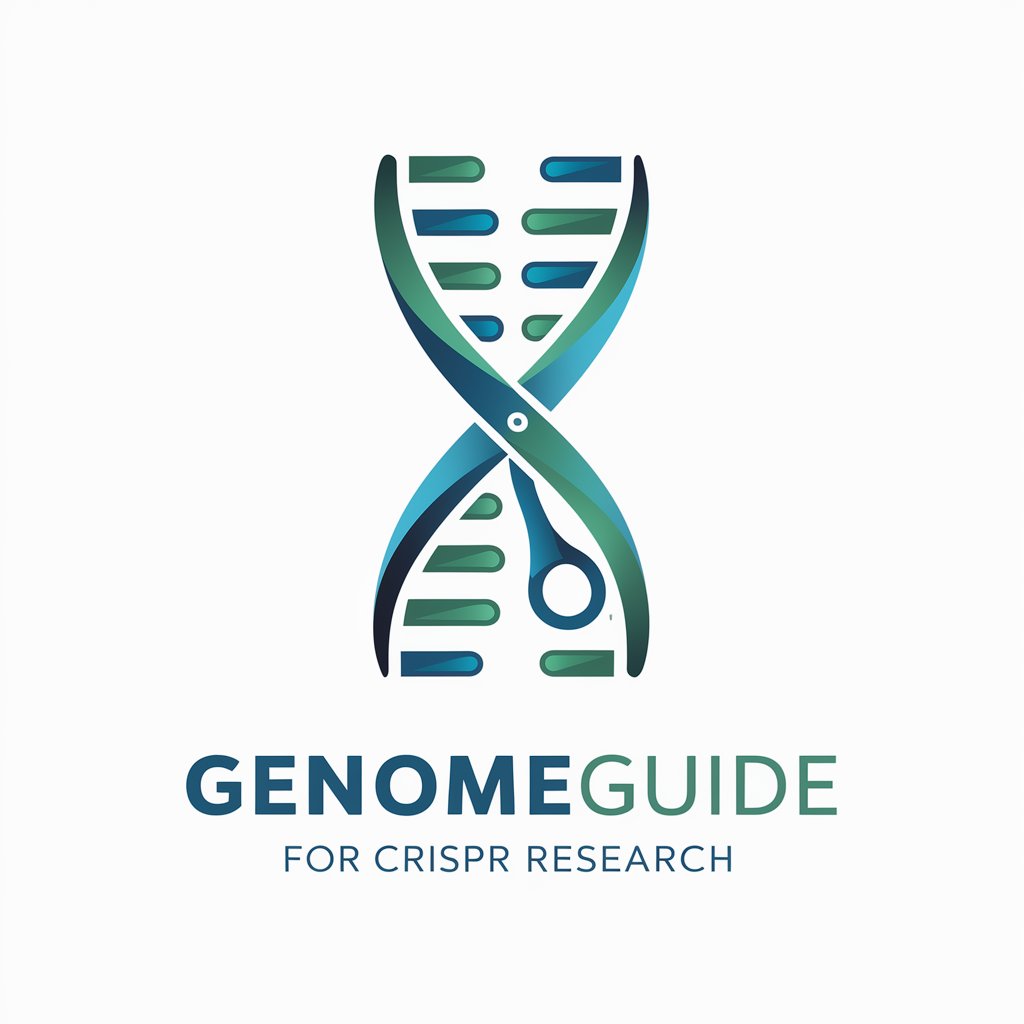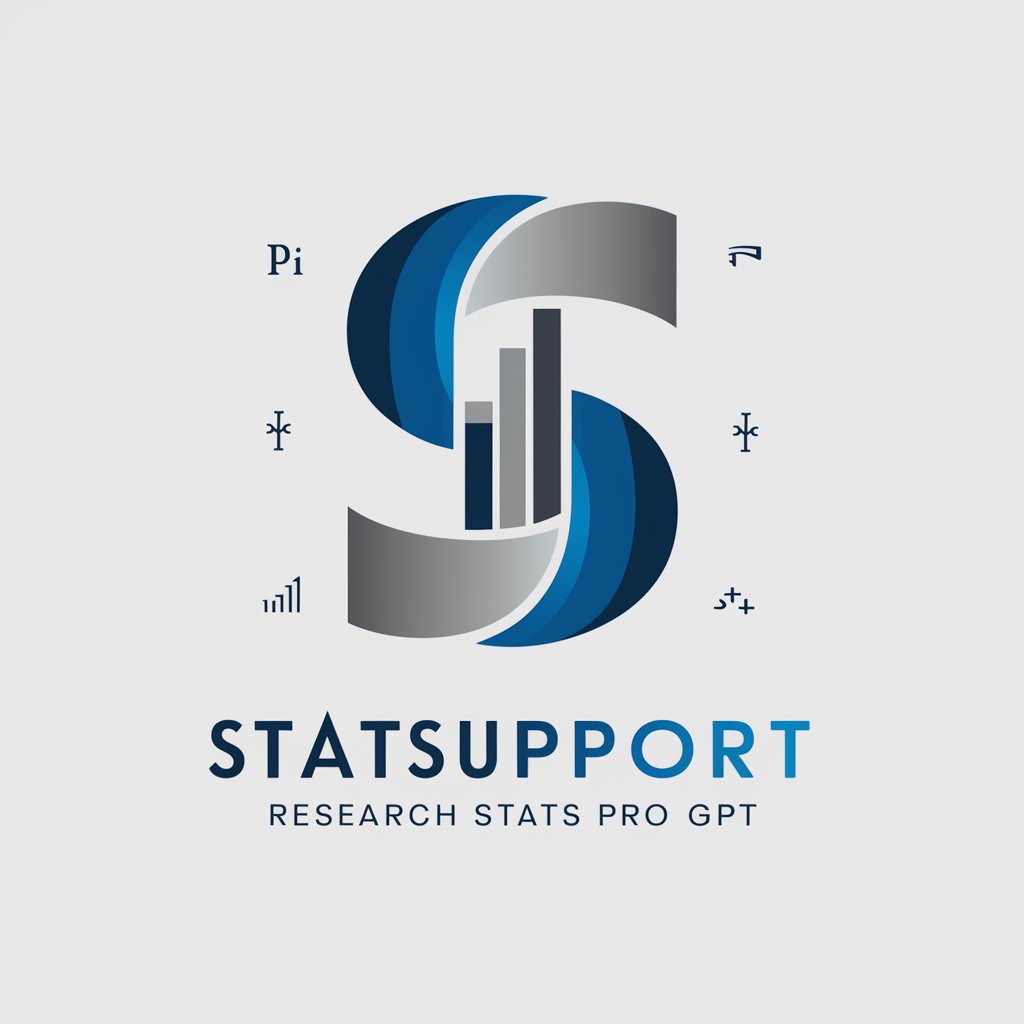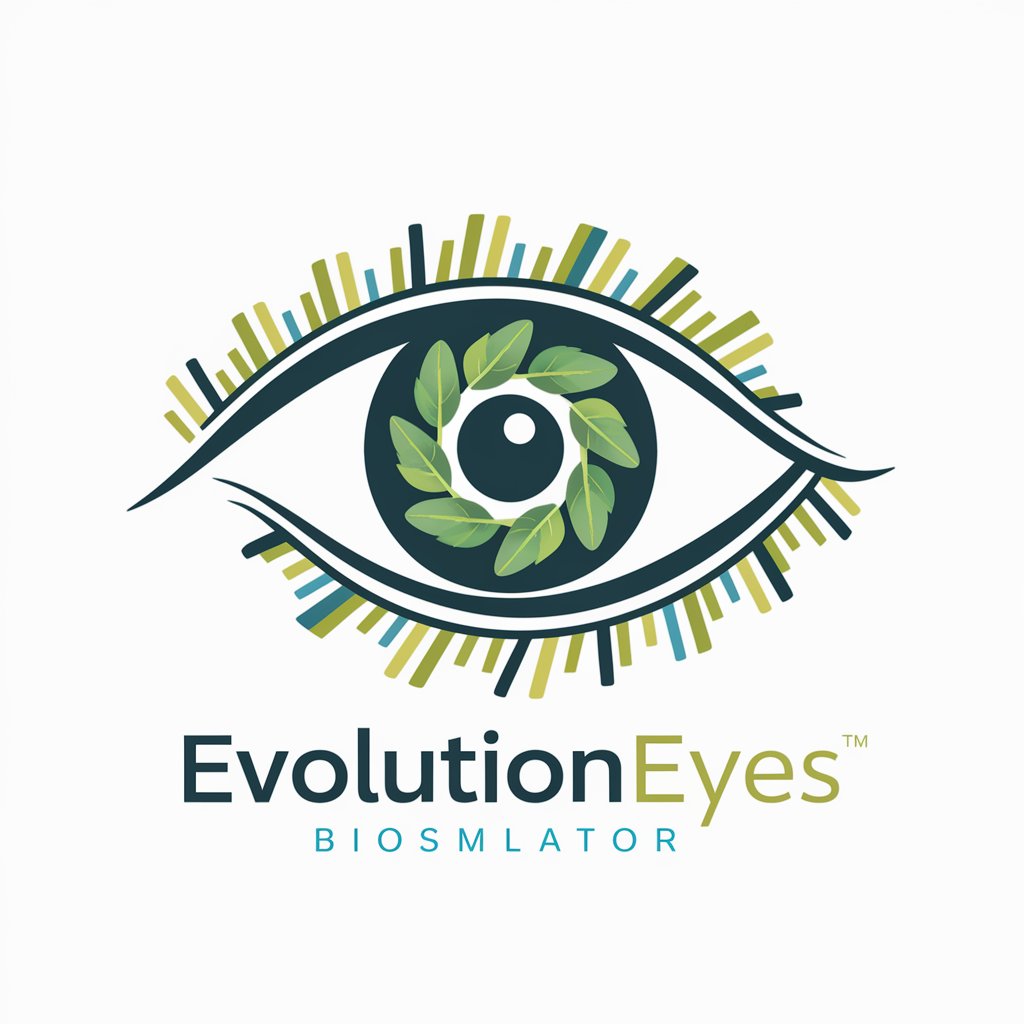🔬✨ ImmunoInquiry: Immunology Data Hub - Immunology Research Assistant

Welcome to ImmunoInquiry, your hub for immunology research data and analysis.
Streamline Immunology Research with AI
Can you summarize the latest research on T-cell therapies?
What are the current trends in immunotherapy for cancer?
Help me organize my dataset on vaccine efficacy studies.
Generate a visual representation of cytokine interaction data.
Get Embed Code
Introduction to ImmunoInquiry: Immunology Data Hub
ImmunoInquiry is a specialized digital platform designed to assist immunologists and researchers in managing and analyzing immunology research data. The core purpose of this hub is to streamline the research workflow, facilitate faster access to critical data, and aid in the effective communication of immunological research findings. It integrates various functionalities tailored to the needs of immunology research, such as organizing data sets, retrieving pertinent research articles, analyzing immunological trends, and providing assistance with statistical analysis. ImmunoInquiry also generates visual representations of data through graphs and charts, facilitates literature reviews by summarizing research findings, and keeps users up-to-date with the latest in immunology research through daily briefings. For instance, a user studying the effects of a new vaccine can easily organize experimental data, access the latest related research articles, and generate graphs showcasing their results for publication. Powered by ChatGPT-4o。

Main Functions of ImmunoInquiry: Immunology Data Hub
Data Organization and Analysis
Example
A researcher can input experimental data on immune response to various stimuli and use ImmunoInquiry to categorize the data based on response type, magnitude, and the specific immune cells involved. The system can then analyze trends within this data, highlighting significant patterns.
Scenario
In studying the efficacy of a new immunotherapy, data organization and analysis tools help researchers quickly categorize patient responses, identify outliers, and statistically validate the therapy's effectiveness.
Literature Review and Research Article Retrieval
Example
By inputting keywords related to their study, users can retrieve recent articles, reviews, and meta-analyses. ImmunoInquiry summarizes the findings, helping users synthesize large volumes of information.
Scenario
When investigating a novel autoimmune disorder, a researcher uses ImmunoInquiry to gather and summarize relevant studies, facilitating a comprehensive understanding of current knowledge and identifying research gaps.
Statistical Analysis and Visual Data Representation
Example
Users can apply statistical tools to their data sets, generating p-values, confidence intervals, and other relevant statistics. ImmunoInquiry can then produce charts, graphs, and other visuals to represent these findings clearly.
Scenario
Preparing for a conference, a researcher uses statistical analysis to validate their findings and visual tools to create engaging presentations on the immune system's role in cancer.
Ideal Users of ImmunoInquiry: Immunology Data Hub
Academic Researchers
Scholars and students engaged in immunology research can greatly benefit from ImmunoInquiry's ability to organize and analyze experimental data, access and summarize pertinent literature, and stay abreast of the latest scientific discoveries, aiding them in publishing their work and advancing their academic careers.
Healthcare Professionals
Clinicians and medical researchers focusing on immune-related diseases and therapies can utilize ImmunoInquiry to understand the latest research developments, analyze clinical trial data, and integrate findings into their practice or research for improved patient outcomes.
Biotechnology and Pharmaceutical Companies
R&D departments within these companies can leverage ImmunoInquiry for drug discovery and development processes, especially in the immunotherapy space. The platform facilitates efficient management of research data, helps in the identification of therapeutic targets, and supports regulatory submission documentation.

How to Use ImmunoInquiry: Immunology Data Hub
1
Begin by visiting yeschat.ai for an initial trial that requires no login or ChatGPT Plus subscription.
2
Identify the specific immunology research data or question you need assistance with to focus your inquiry.
3
Utilize the query interface to input your research data or questions, specifying any particular areas of interest or required analysis.
4
Explore the resources and tools offered by ImmunoInquiry, such as data analysis, article retrieval, and trend identification.
5
Review and apply the insights and outputs provided by ImmunoInquiry to your research, using the tool's guidance to refine your queries as needed.
Try other advanced and practical GPTs
🌱 BotanyBasis - Plant Growth Tracker 📈
Nurture Your Garden with AI

🧬✂️ GenomeGuide for CRISPR Research 🔬📊
Streamlining CRISPR research with AI

📊 StatSupport – Research Stats Pro 🧮
Empowering Research with AI-Driven Stats

🌊OceanOculus: Ocean Data Visualizer🔍
Visualizing the ocean's depths with AI.

🔬VirologyVault: Virus Tracker🦠
Empowering virology with AI insights.

🌱 ClimateCorrelator Eco-Insight 🌍
AI-powered environmental analysis and prediction

🌍⛏️ PetroProbe: Oil & Earth Insights 🧪🛢️
AI-powered insights into oil and earth

🌦️ MeteorologyMapper: Weather Analysis 🛰️
AI-Powered Weather Insights at Your Fingertips

🧠 NeuroplasticityNavigator 🌱
Empowering Brain Health with AI

🔬 PathogenPatrol: Disease Detective 🦠
AI-powered Infectious Disease Insights

🧬 EvolutionEyes: BioSimulator 🌿
Simulating Life's Complexities, AI-Powered Insights

🔮 CrystalCalculator: Solid-State Pro 🧬
AI-Powered Crystallography Insights

FAQs about ImmunoInquiry: Immunology Data Hub
What kind of data can ImmunoInquiry analyze?
ImmunoInquiry can analyze a wide range of immunology-related data, including experimental results, statistical analyses, and research article data. It's designed to handle complex datasets and provide insights into immunological trends and patterns.
How does ImmunoInquiry help with academic writing?
ImmunoInquiry aids in academic writing by summarizing research findings, providing literature reviews, and suggesting data-driven conclusions. It can help structure scientific papers and ensure that your writing is grounded in the latest immunological research.
Can ImmunoInquiry generate visual representations of data?
Yes, ImmunoInquiry can generate graphs, charts, and other visual representations to help illustrate your data more effectively. This feature supports a clearer understanding of complex immunological data and trends.
Is ImmunoInquiry updated with the latest immunology research?
ImmunoInquiry regularly incorporates the latest immunology research through web browsing capabilities. This ensures that users have access to the most current data and findings in the field of immunology.
Can ImmunoInquiry assist in data organization?
Yes, ImmunoInquiry is designed to help users organize their immunology research data efficiently. It provides tools for managing datasets, making it easier to access and reference specific data points during the research process.
